What Patients & Professionals Need to Know about Insomnia, Addiction, & Recovery
Recently published research has revealed a strong relationship between insomnia and addiction – and has raised concerns that failing to treat sleeplessness during early recovery can increase the likelihood of relapse.
“Accruing evidence indicates that insomnia is prevalent and persistent in early recovery from substance use disorders and may predict relapse,” the authors note in the abstract of their study. “As such, insomnia treatment after abstinence represents an important area for intervention. “
The study, titled “An Evidence-Based Review of Insomnia Treatment in Early Recovery,” was published in the November/December 2014 edition of the Journal of Addiction Medicine. The study was co-authored by Katherine A. Kaplan, PhD; ,John McQuaid, PhD; Charles Primich, MSN; and Nicholas Rosenlicht, MD.
The Relationship Between Insomnia & Addiction
Complicating the matter somewhat is the fact that connection between insomnia and addiction isn’t merely a matter of the former causing the latter.
For example, many people who abuse alcohol do so in an effort to combat sleeplessness. However, because alcohol abuse can actually cause or exacerbate these problems, the result can be a vicious cycle of increased drug abuse and ever-worsening insomnia.
The New York State Office of Alcoholism and Substance Abuse Services (OASAS) addressed this issue in an article titled “Insomnia and Alcohol and Substance Abuse”:
Small amounts of alcohol can cause early sedation or sleepiness, and is often used as a sedative. However, the use of alcohol as an effective sedative can be extremely misleading because the side effects that can result are usually even more harmful and detrimental to the natural sleep cycle.
For instance, due to the natural elimination of alcohol from the body, arousal and sleep fragmentation can occur and the second half of the sleep period can be drastically interrupted. This is due to the fact that, although alcohol will cause sedation, it will also decrease REM sleep in the first half of the night resulting in the rebound of REM sleep later in the night.
When the rebounding of REM sleep occurs, it causes frequent awaking during the night, and suppression of REM sleep. Gene rally, with continued consumption, alcohol’s sedative effects decrease and its disruptive effects remain the same or increase. (NIAA-Alcohol Alert, 1998; Oscar-Berman, 1997; NIAA -NIH guide, 07/02/01)
An article in the May 2008 edition of Current Psychiatry noted similar findings.
“Across 7 studies of 1,577 alcohol-dependent patients undergoing treatment, more than one-half reported insomnia symptoms (mean 58%,range 36% to 91%),substantially higher than the rate in the general population (33%),” the Current Psychiatry article reported. “Nicotine, marijuana, cocaine and other stimulants, and opioids also can disrupt sleep.”
Treating Insomnia Without Medication
One of the challenges in treating insomniac patients who are in addiction recovery is ensuring that the treatment itself doesn’t put the patients’ recovery at risk.
A Nov. 5, 2014 article on the ScienceDaily website addresses this problem, and advocates on behalf of cognitive-behavioral therapy (CBT) as an effective non-medication-assisted means of treating insomnia:
More generally, clinicians should be aware prescribing medications to treat insomnia may be “incongruent with or unpalatable to” treatment programs focusing on abstinence. In one survey, many addiction medicine specialists said they’d be reluctant to prescribe any medication to patients with sleep problems.
In particular, evidence supports the use of cognitive-behavioral therapy (CBT).
This multicomponent approach includes daily sleep diaries and questionnaires to gather information on the patient’s insomnia and progress during treatment; and education on sleep and the effects of substances, including “sleep hygiene” practices to promote good sleep.
CBT intervenes by targeting processes that perpetuate insomnia. Behavioral interventions include sleep restriction, limiting time in bed to the actual amount of time slept; and stimulus control, seeking to strengthen the association between being in bed and sleeping. Patients also receive cognitive interventions, challenging negative or catastrophic thoughts about the consequences of insomnia.
What’s most important, according to one of the co-authors of the Insomnia Treatment study discussed at the beginning of this article, is identifying patients who are struggling with insomnia and addressing that problem early.
“Treating sleep disturbance in early recovery may have considerable impact on maintenance of sobriety and quality of life,” Dr. Rosenlicht said in a Nov. 5 press release.
Learn More About Insomnia, Addiction, & Recovery
The following sources were consulted for this article, and are excellent sources of additional or more in-depth information about insomnia, addiction, and recovery:
- An Evidence-Based Review of Insomnia Treatment in Early Recovery (Journal of Addiction Medicine, November/December 2014) HTML version
- An Evidence-Based Review of Insomnia Treatment in Early Recovery (Journal of Addiction Medicine, November/December 2014) PDF version
- High Rate of Insomnia during Early Recovery from Addiction (Wolters Kluwer Health press release Nov. 5, 2014)
- High Rate of Insomnia during Early Recovery from Addiction (Science Daily, Nov. 5, 2014)
- Insomnia and Alcohol and Substance Abuse (New York State Office of Alcoholism and Substance Abuse Services)
- Insomnia in Patients with Addictions: A safer way to break the cycle (Current Psychiatry, Vol. 7, No. 5) PDF version













